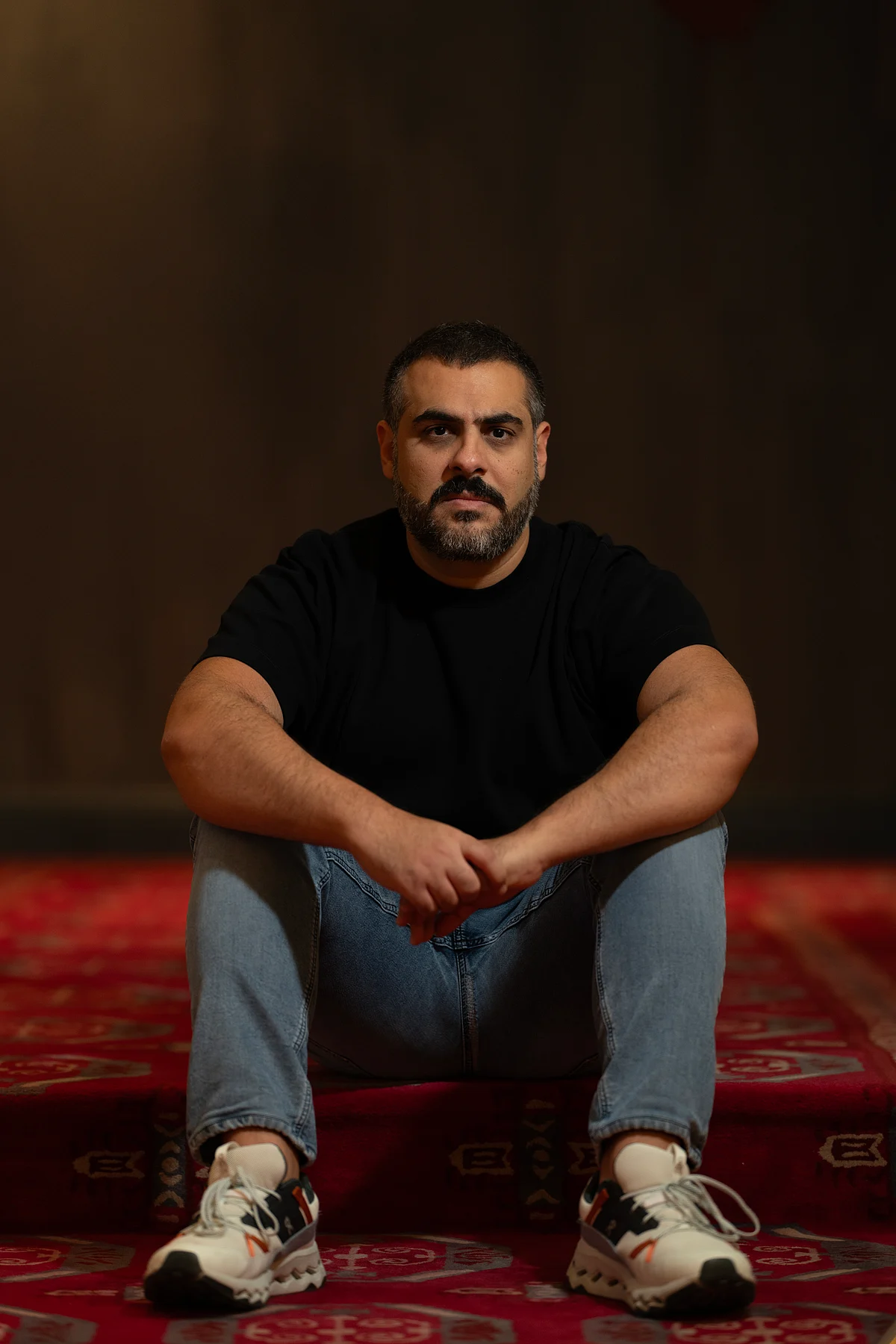Emirati Filmmaker Majid Al Ansari Brings Arab Horror To The World With 'Hoba'
Horror doesn't often creep into Arab cinema - but when it does, chances are Majid Al Ansari is behind it. The Emirati filmmaker has carved out a niche in psychological thrillers and genre storytelling, from his breakout Zinzana to Netflix's Paranormal and Kaboos. With Hoba, his latest film, Majid is grounding the scares in a cultural reality that's uniquely Emirati, and his own.
At its core, Hoba is about family, choice, and the unsettling dynamics of polygamy, told through the eyes of Amani (played by Budoor Mohammed). It's a story Majid insists couldn't be replicated anywhere else. Ahead of the film's international festival run, we sat down with him to talk about making horror personal, collaborating with Hollywood veterans, and why he believes the Arab world is ready to embrace its own brand of fear. Excerpts from the interview:
Recommended For You Old is gold as Sharjah Golf & Shooting Club crowns new champion at 18th Summer Open With 'Hoba', you return to psychological horror. What drew you back to the genre?
I never really left it. This is a genre I've always loved - horror, thriller, psychological stories. Growing up, I was a big fan of genre films. But in the Arab world, we don't have many horror films, so part of my mission as a filmmaker, especially as an Emirati, has been to bring this genre to life here. Zinzana was a psychological thriller, then I worked on Paranormal with my wife on Netflix, then Kaboos. Now, with Hoba, I'm continuing in the space I feel most connected to.
Does your filmmaking style in 'Hoba' reflect Emirati or Arab culture? Why was that important?
Hoba is a horror-thriller film that delves into a deeply emotional and human story. The film explores one woman's personal experience in a specific situation, we chose to shoot in the UAE since we wanted to tackle this important topic from an Arab lens.
What sparked the idea for Hoba and for Amani's story in particular?
It's something I've observed since childhood. I remember being in grade two or three when a friend told me he didn't want to speak to his father anymore. I asked why, and he said,“Because my father married someone else. He doesn't love me.” I was only seven or eight, but that moment stuck with me - how a child could feel so abandoned. Later, while working on a judicial series, I saw many real cases in court that dealt with these situations. I'm not against polygamy, but I wanted to explore the horror of having no choice, of being forced into a situation. That's what happens to Amani in Hoba.
Since the film will screen internationally, are you cautious about how it will be received?
I'm cautious, but not scared. Everything in this film came from the heart, from research, from lived experiences - mine or my friends'. That gives me peace of mind. Even if some don't agree, I know the
story is relevant to not only our culture, but to audiences globally. I'm excited for audiences at festivals like Fantastic Fest, BFI, and Sitges to see a side of our world they may never have had access to.
You worked with genre veterans like Roy Lee (Barbarian) and Steven Schneider (Insidious). Did their involvement influence your process?
Very much so. Stephen was involved throughout development and production. In the script stage, we had a lot of back-and-forth, and he really helped shape the story. The editing process was also a huge learning experience - sometimes he'd suggest something as small as removing a single cut, and suddenly the whole scene changed. That kind of experience helped us finish the film stronger and faster.
Would you be open to the film being dubbed for international audiences?
A thousand percent. It's not my decision, but I'd love that.
How has your approach to storytelling in horror evolved since 'Zinzana'?
I learned to make it personal. Around the time I finished Zinzana, I watched Na Hong-jin's The Wailing from Korea. It struck me - those films are so intertwined with their culture, they can't easily be remade. That's what I wanted for myself: films that are about us, for us, by us. That's why I took time with TV projects in between - they were my playground to test and refine ideas before Hoba.
Beyond horror, do you see yourself exploring other genres?
For now, I'm committed to horror and thrillers. Maybe action thrillers, but not comedies. Even with Hoba, at its heart it's a family drama - the drama drives the horror, not the other way around. For me, it always starts with the characters, and the scares follow naturally.

Legal Disclaimer:
MENAFN provides the
information “as is” without warranty of any kind. We do not accept
any responsibility or liability for the accuracy, content, images,
videos, licenses, completeness, legality, or reliability of the information
contained in this article. If you have any complaints or copyright
issues related to this article, kindly contact the provider above.
Most popular stories
Market Research

- Motif AI Enters Phase Two Of Its Growth Cycle
- 1Inch Unlocks Access To Tokenized Rwas Via Swap API
- Kucoin Presents Kumining: Embodying Simple Mining, Smart Gains For Effortless Crypto Accumulation
- With Seal, Walrus Becomes The First Decentralized Data Platform With Access Controls
- Jpmorgan Product Head Joins GSR Trading MD To Build Institutional Staking Markets
- Innovation-Driven The5ers Selects Ctrader As Premier Platform For Advanced Traders






















Comments
No comment